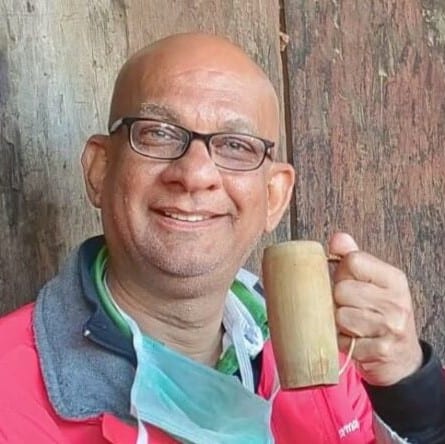People
THE CORE TEAM
Amit Tirkey
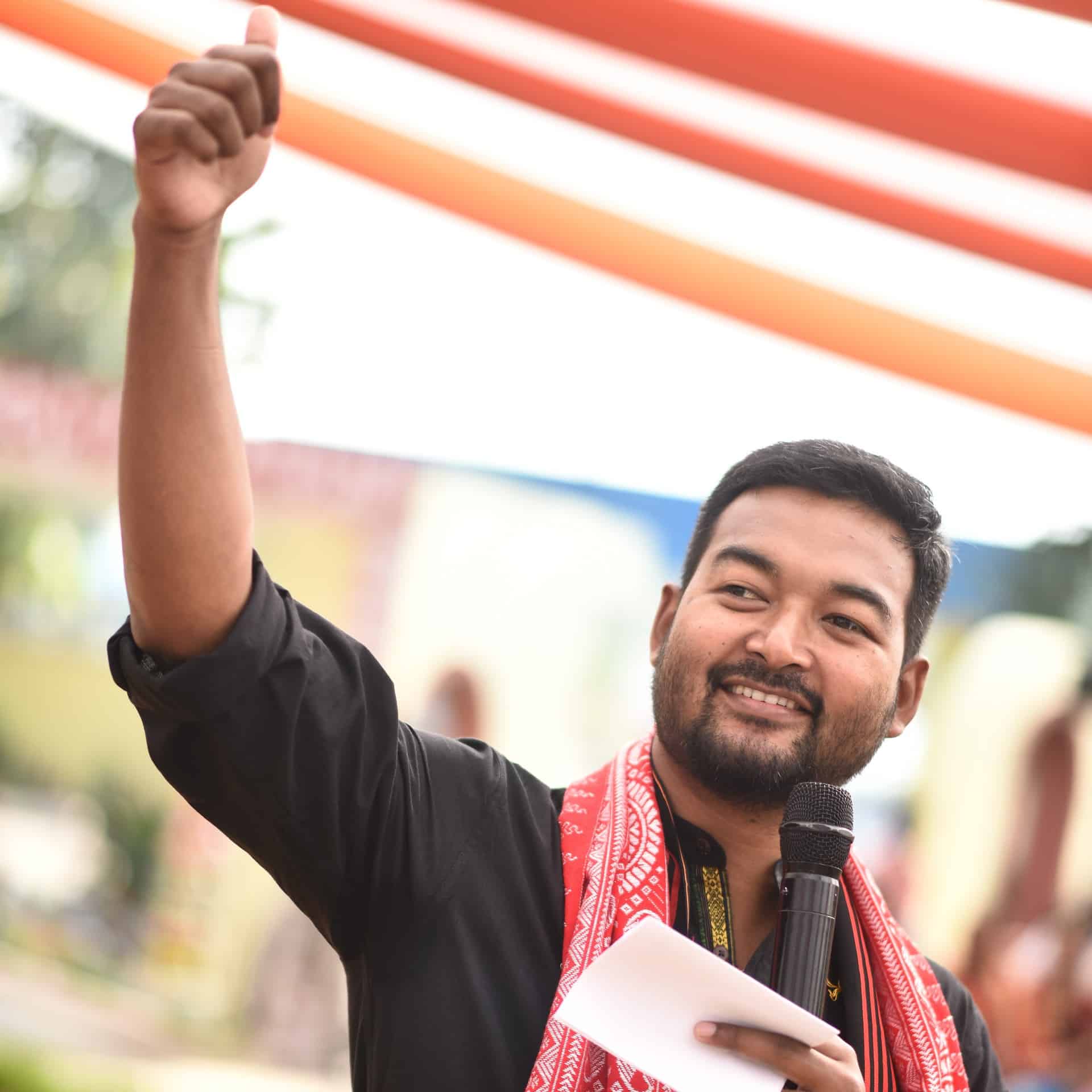
Amit Tirkey
Amit was born in an indigenous village in Gumla, Jharkhand. His heart finds home in the beauties of rural landscapes and forests. He is a sum of all his meandering journeys and the people he met on the way. He practices the simplicity of his roots, though he does not deny his worldliness.
He began his work-life in Jharkhand, in the development sector, first with Care, and then with Ekjut, in the area of public health. His last engagement was with the CSR division of Tata Steel where he led Empowerment and Youth Initiatives across Jharkhand and Odisha, including robust programmes on indigenous languages and cultural identity. He also was deeply engaged with its pan-India Tribal Leadership Programme.
He has a graduation degree in economics from Loyola College in Chennai, post-graduation from the Tata Institute of Social Sciences in Mumbai, and a business management degree from XLRI, Jamshedpur.
Amit is a fellow of the IATSS Leadership Programme, Japan. He is also a Caux Scholar in Conflict Transformation and Peacebuilding.
Anish Victor
Anish Victor
Anish likes to cook, be it dreams, desserts or ways to discover little transformations.
With a background in the performing arts, Anish is a theatre actor, theatre activist and theatre reformer. Co-founder of the Bangalore-based organisation Rafiki, Anish has worked with and trained under masters such as Probir Guha, Raja Ravivarma, Kanan Kumar, Anamika Haksar and Michel Casanovas. His critically-acclaimed solo performance Koogu is a result of his conversations with French ballet dancer Michel Casanovas on questioning their calling as performing artistes. His collaboration with Maraa, a media and arts collective, resulted in Unreserved, a project on identity, which witnessed train journeys spanning 10,000 kilometres, involving people and organisations from Karnataka, Assam, Kashmir and Kerala.
While Anish has worked with all ages and all genders, his strength lies in sharing the joys and challenges of theatre with children and young adults, with a special focus on autistic children. His training includes various forms, such as devarattam, silambattam and tai chi qigong. Whenever he finds a bit of time, he takes refuge in his guitar.
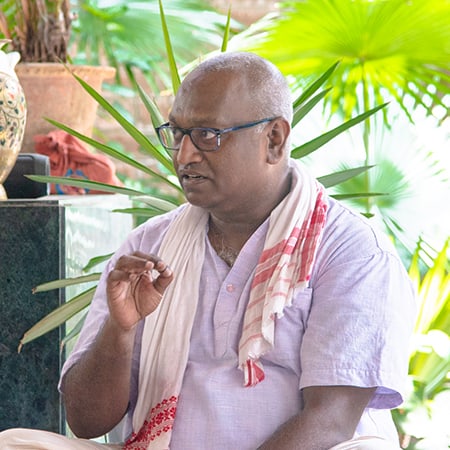
Bhanwar Meghwanshi
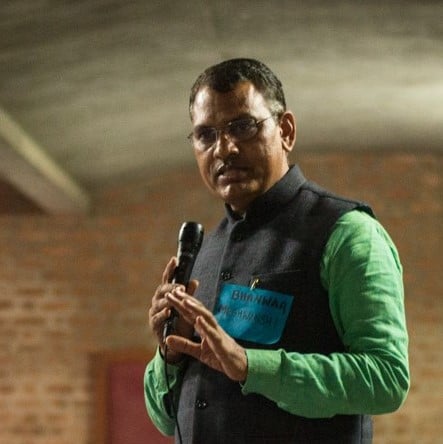
Bhanwar Meghwanshi
Bhanwar is an award-winning writer, journalist and social activist. Born in a weaver’s family in Sidiyas village in Rajasthan, he studied art and literature at Bhagwant University, Ajmer.
As a teenager, Bhanwar became a member of the Rashtriya Swayamsevak Sangh, which he later quit and became associated with grassroots organisations working for social and economic justice. This led him to play an active role in student politics and then into full-time work at the Mazdoor Kisan Shakti Sangathan for 13 years.
Bhanwar was once a school teacher. He was also formerly the founder and editor of Diamond India, a monthly journal that covered issues from grassroots perspectives. He is the founder of the Dalit Adivasi and Nomadic Adhikar Abhiyan, Rajasthan (Dagar). His recent book, ‘I Could Not be Hindu: The Story of a Dalit in the RSS’ has caught the attention of people from all over the world. He runs the award-winning news website, Shunyakal. These days, he has an active association with the People’s Union for Civil Liberties.
He is recipient of the Bhauruka Charitable Trust Award, Sarojini Naidu Award, and Ambedkar International Award.
Bhawana Luthra
Bhawana Luthra
Bhawana, Executive Director at LEAD (Leadership for Environment and Development) India, finds purpose in serving and strengthening the cause of building leadership that can lead with compassion amid uncertainty.
Through her work as a practitioner in varied sectors — water, sanitation, climate change, disaster preparedness, natural resources management, and sustainable livelihoods — she has gained deep insights into the interconnectedness of issues, and gaps in addressing the same.
Closely working with diverse communities, civil society organisations, states and national governments, policymakers, business entities, and donor agencies, she is on a journey of constant engagement, learning, and collaboratively searching answers to complex societal challenges.
Bhawana believes in the Systems approach of seeing realities along with those who face these. For more than a decade she is immersed in designing experiential leadership journeys for those who go beyond self-interests and act for the larger good. She facilitates such journeys globally using approaches like Theory U and Adaptive Leadership.
Bhawana seeks to go deeper in her quest to meet the divine presence that exists in all sentient beings. She is associated with Disom in a voluntary position.
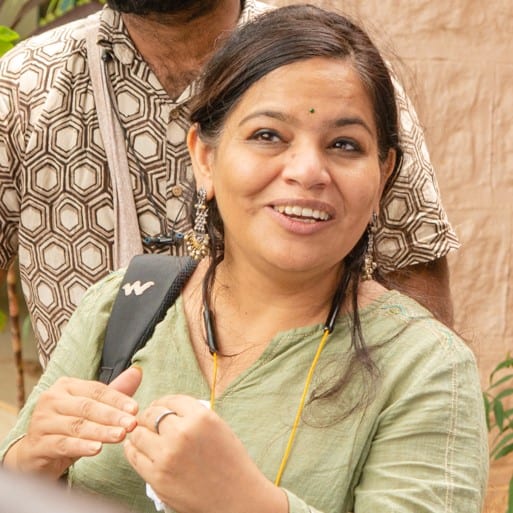
Biren Bhuta
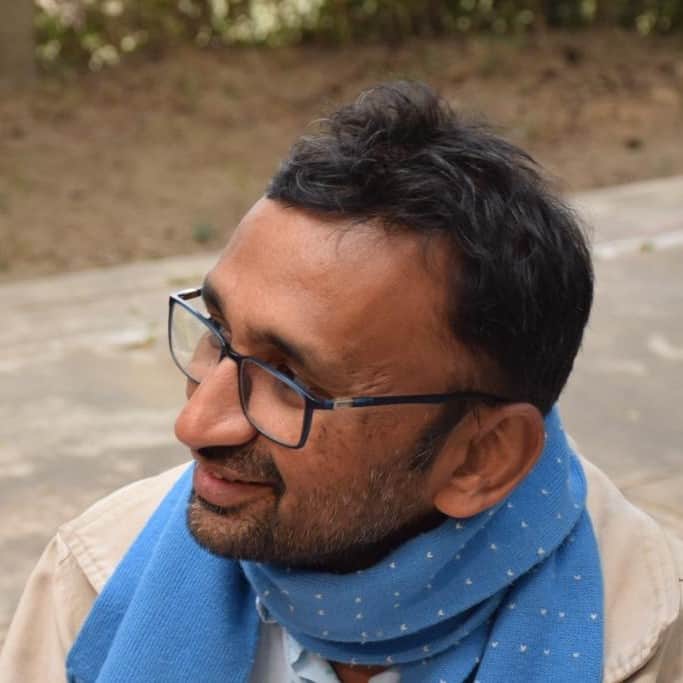
Biren Bhuta
Biren embarked on his career as a banker in Chennai. He gave it up to cut his teeth as a broadcast journalist with NDTV, where he reported on business, finance and the economy extensively.
The search for a deeper engagement with India took him to Bastar in Chhattisgarh. Indigenous living and thinking reshaped his worldview; he believes that to save the world we must embrace indigenousity.
Biren’s longest stint has been with Tata Steel, as the Chief of Corporate Social Responsibility. It led him to create a hallmark — an international tribal identity conclave called Samvaad, which is a robust mobilisation even today. He left the company in 2018.
An alumnus of IIM-Calcutta, a fellow of the Management Development Programme of Ross Business School, Michigan, and a recipient of the Gurukul Fellowship from the Foundation for Universal Responsibility of His Holiness the Dalai Lama, Biren serves on the board of Gram Vikas in Odisha, Bhasha Research and Publication Centre in Gujarat, and SeSTA in Assam.
Previously, Biren has briefly but passionately worked for the conservation of the Olive Ridley sea turtles in Odisha with IUCN. He loves Urdu poetry and Hindustani classical music.
Jayapadma R. V.
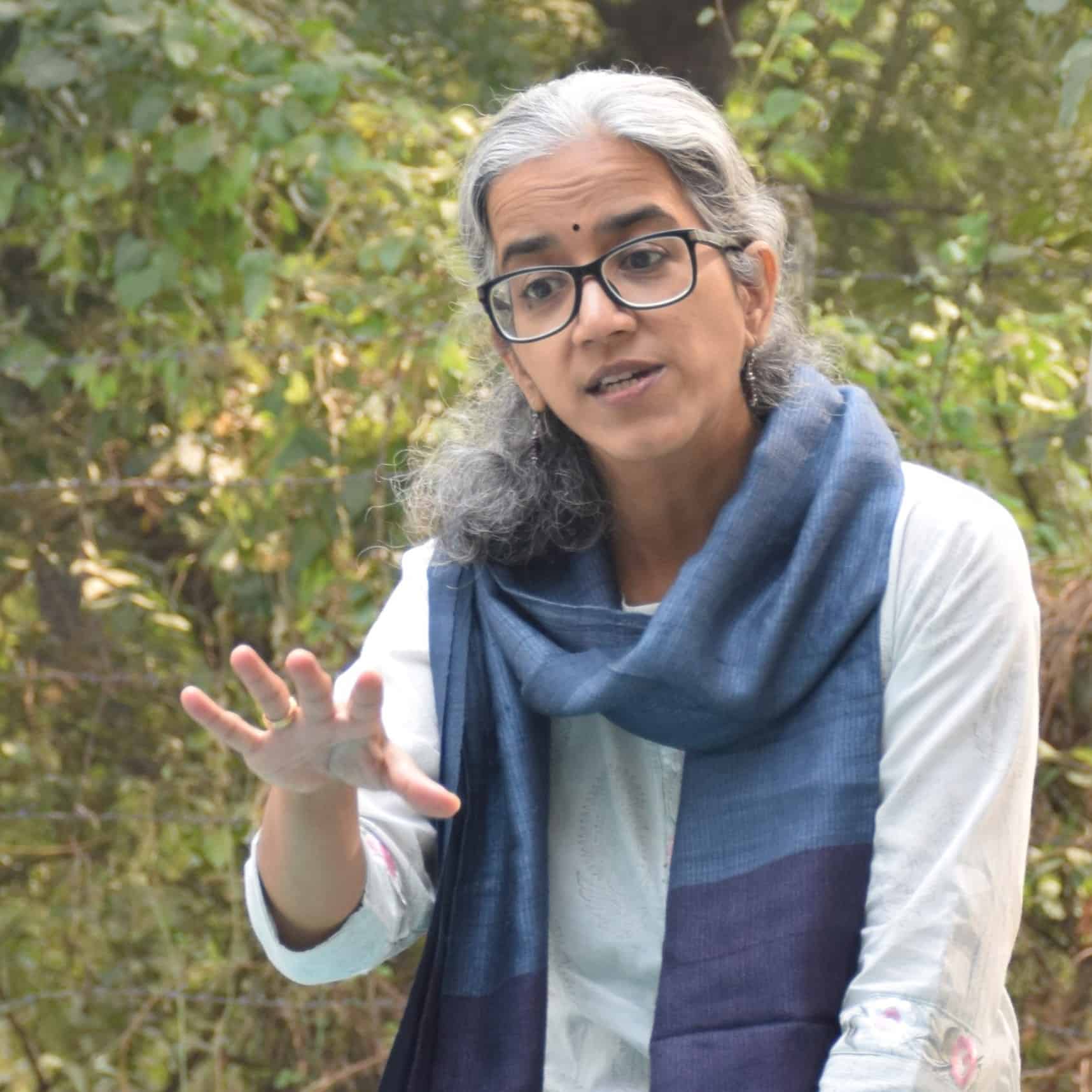
Jayapadma R. V.
Jaya has keen interest and engagement in sustainable social development. Over 25 years, she has journeyed through, learnt from, and contributed to the work of community-based organisations, bilateral aid, corporate social responsibility bodies, as well as research and academic institutions. A connector and catalyst is how she imagines her work to be.
Her early work in rural Jharkhand and Odisha was her learning ground; it is here that she understood the politics of development, and how processes for community-led pathways in development are rooted in strong systems of local governance.
Teaching, training, coaching, capacity building, and facilitating peer-exchange of knowledge are integral to her work. She has taught rural management and sustainable development at institutes of post-graduate studies and also at the high school level.
An alumnus of IRMA, and a Chevening Scholar, Jaya serves on the board of Voice4Girls and Timbaktu Collective. She enjoys travelling and meeting people. Creating things with her hands, listening to music, learning music, singing, birdwatching, and sketching are her avid pursuits. She writes often, and some of her work has been published in journals and magazines.
Kilentola Jamir
Kilentola Jamir
Hailing from Nagaland’s Dimapur, Kilentola is a Holistic Counsellor and trainer by profession, with over 10 years of experience as a teacher and mentor to children and young adults in the field of education, human development, mental health, leadership building, and community networking.
She is known for her passion to bring people together for peace-building, social dialogues, as well as those involving interpersonal relationships.
She is a volunteer for Initiatives of Change, India, and has worked on its outreach programmes across the country in 2018.
She is on the board of Can Youth and Tribal Old Age and Daycare Centre; the NGOs work with the elderly, with school dropouts, and also in the spaces of livelihoods and mental health.
Kilentola is a freelance mentor for life skills, personality development, and communication. She is also a ghost-writer / editor who goes by her pen-name, Tutu K Jamir.
She considers herself a human bridge across divisiveness of all shades, advocating true empathy and compassion.
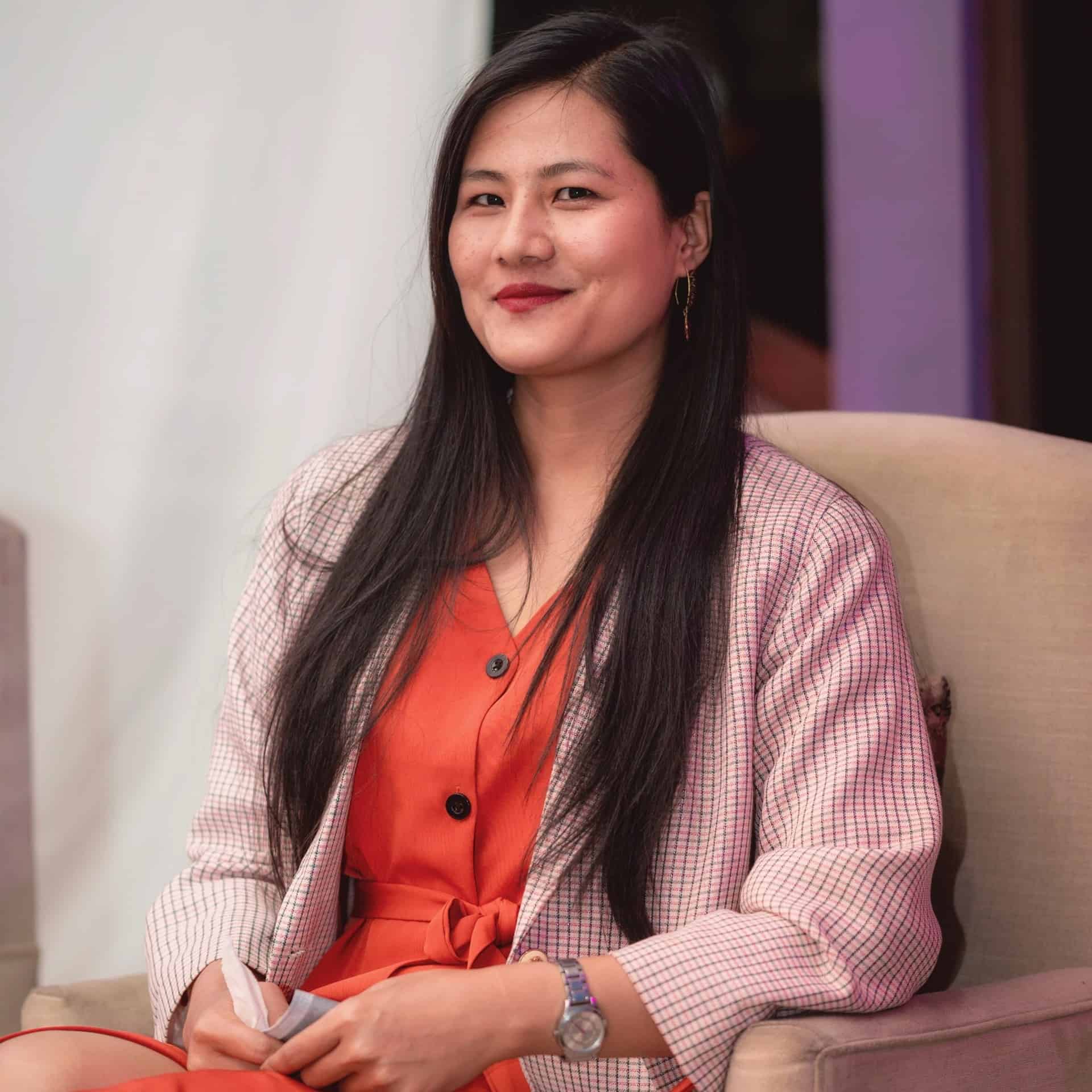
Lijo Chacko
Lijo Chacko
A part of the team which constructed India’s first indigenous nuclear submarine, Lijo has operated six attack submarines in his naval career. On promotion to Commander, he headed the Submarines’ Division in Naval Dockyard, Mumbai, and was thereafter Project Coordinator of the simultaneous construction of six Scorpene submarines at the Mazagon Dock, Mumbai.
An avid outdoorsman, he can roll on skates, control a puck on ice and can ski on water as well as on snow-laden slopes. He has para-dropped from aircrafts and taken laser boats for spins.
His journal on his ascent of Mt. Everest, has been published in Malayalam as the Everest Diary.
An alumnus of Yale University and the Robert Bosch Foundation, and a fellow at the Institution of Engineers (India), Lijo is the Founder-Executive Director at the US-based Vasudhaiva Kutumbakam Foundation that works alongside NGOs in the space of education, public health and conservation across the globe. He is also a Founder-Director at the Government to Citizens Changemakers Foundation, created for inclusive social development by better connecting governments, citizens and corporates.
Lijo has been associated with the works of the Mauna Dhwani Foundation, Estah, Guru Puraskar Foundation, Young African Leadership Initiative, Red Cross and UNDP-IBIN.
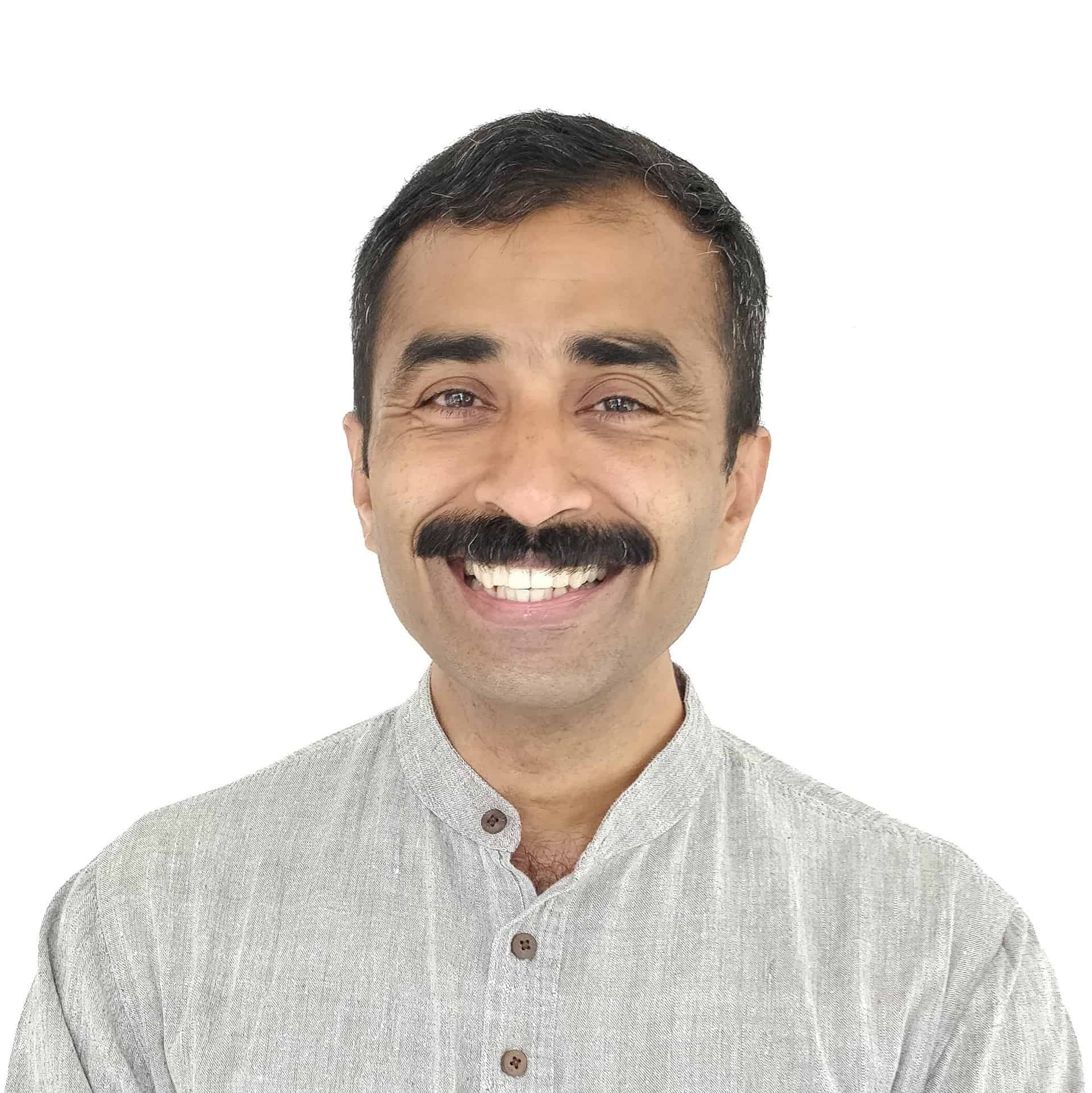
Madhavi K.

Madhavi K.
Madhavi, an alumna of the School of Planning and Architecture New Delhi, and the Indian Institute of Management Kolkata, has a career spanning over two decades in the corporate sector across industries and functional roles.
Process quality and process re-engineering have been her longest vocation: as a Lean Six Sigma Master Black Belt at IBM Corporation; and later as Head of Process Quality at Sonata Software Limited.
As an operations manager with an IT service provider in South Africa for three years, Madhavi was involved in implementing various technology solutions for Durban metro municipality and local municipalities across the Kwa-Zulu Natal province. Becoming a Design Thinking proponent as part of her last work role, Madhavi has held various internal and client facilitation workshops related to this. Previously she has worked in sales and marketing roles with Maruti Suzuki, Coca Cola, Standard Chartered and ICICI Prudential Mutual Fund.
In her own time, Madhavi turns to music, visualises, sketches; she is currently learning cartooning.
Sriprakash Mayasandra
Sriprakash Mayasandra
It has been a remarkable life of adventure, learning and engagement. After working towards relief, development and peacebuilding in several regions of the world, Sri has joined Disom.
A turning point was having lived through the Bhopal Industrial Catastrophe of 1984.
He basks in the memories of opportunities to have met and worked alongside committed persons in local communities and inspiring individuals such as the Patriarch of the Syrian Orthodox Congregation and Mother Teresa. His passion to learn about cultures and build relationships across boundaries have been nurtured by the opportunity to partner with individuals and organisations in many countries in the world.
Comprehending historical wounds in the Middle East and North-East Asia has broadened his understanding of human fragility and the urgency for restorative measures.
Sri enjoys hospitality and has found this to be an amazing means to build bridges to give hope and vision for healing. Living a simple life with minimum encumbrances has been a source of freedom and joy.
